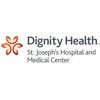Deep Brain Stimulation of the nbM to Treat Mild Cognitive Impairment in Parkinson's Disease
Parkinson's Disease, Mild Cognitive Impairment

About this trial
This is an interventional treatment trial for Parkinson's Disease
Eligibility Criteria
Inclusion Criteria:
- Informed consent signed by the subject.
- Parkinson's disease per UK Parkinson's Disease Society Brain Bank (Queens Square) criteria
- Diagnosis of PD-MCI, amnestic subtype per MDS criteria (Level II assessment)
- DBS candidate for GPi targeting per the consensus committee
- 50 - 75 years of age
- Primary English speaking
- Minimum of 10 years of education
- Motorically and cognitively capable of completing evaluations and consent
- Medically cleared for surgery and anesthesia
- Subject must be on stable doses of any medication used to treat PD or cognition for 3 months prior to study entry
- Female subjects with child-bearing potential have a negative serum pregnancy test prior to DBS surgery -
Exclusion Criteria:
- Dementia per DSM-V criteria
- Condition precluding MRI
- History of supraspinal CNS disease other than PD
- Medical condition or required medication compromising cognition
- Alcohol use of more than 4 drinks per day
- Currently uncontrolled moderate-severe depression (BDI>20)
- History of suicide attempt in the year preceding study screening
- History of schizophrenia, delusions, or currently uncontrolled visual hallucinations
- Use of cholinesterase inhibitor
- Subjects who require rTMS, ECT, diathermy, or repeat MRI procedures to treat a medical condition.
- Subjects with a history of seizure disorder
- Subjects who have made a suicide attempt within the prior year,
- Subjects with any medical contraindications to undergoing DBS surgery (eg, infection, coagulopathy, or significant cardiac or other medical risk factors for surgery)
- Subjects with an implanted stimulator such as a cardiac pacemaker, defibrillator, neurostimulator and cochlear implant
- Subjects who are pregnant or nursing.
Sites / Locations
- St. Joseph's Hospital and Medical Center
Arms of the Study
Arm 1
Arm 2
Experimental
Experimental
nbM stimulation ON for 3 months (GPi also on)
nbM stimulation OFF for 3 months (GPi is on)
Subjects will undergo activation of GPi and nbM electrodes The GPi's will be stimulated to achieve improvement in motor function. There is a double blind evaluation of DBS-nbM stimulation. Subjects will be those with nbM stimulation ON for a period of 3 months (GPi also on). No usual treatment is withheld. PD drug doses will be stable unless disabling dyskinesias warrants a reduction of medication. After initial 3 months period of stimulation subject will undergo a repeat of neuropsychological testing and Motor Unified Parkinson's Disease Rating Scale (UPDRS) rating prior to switching group assignment (cross-over). There will be a 2 day wash-out period of nbM stimulation for all subjects (both the On and Off groups) in order to minimize subject bias. Then, the subjects will undergo additional brief neuropsychological testing to asses for carry over effects. The subjects will then be switched to the alternate nbM stimulation group (cross-over) from their previous 3 month period.
Subjects will undergo activation of GPi and nbM electrodes The GPi's will be stimulated to achieve improvement in motor function. There is a double blind evaluation of DBS-nbM stimulation. Subjects will be those with nbM stimulation OFF for a period of 3 months (GPi is on). No usual treatment is withheld. PD drug doses will be stable during blinded parts of the assessment unless disabling dyskinesias warrants a reduction of medication. After initial 3 months period of stimulation subject will undergo a repeat of neuropsychological testing and Motor UPDRS rating prior to switching group assignment (cross-over). There will be a 2 day wash-out period of nbM stimulation for all subjects (both the On and Off groups) in order to minimize subject bias. Then, the subjects will undergo additional brief neuropsychological testing to asses for carry over effects. The subjects will then be switched to the alternate nbM stimulation group (cross-over) from their previous 3 month period.
Outcomes
Primary Outcome Measures
Secondary Outcome Measures
Full Information
1. Study Identification
2. Study Status
3. Sponsor/Collaborators
4. Oversight
5. Study Description
6. Conditions and Keywords
7. Study Design
8. Arms, Groups, and Interventions
10. Eligibility
12. IPD Sharing Statement
Learn more about this trial
